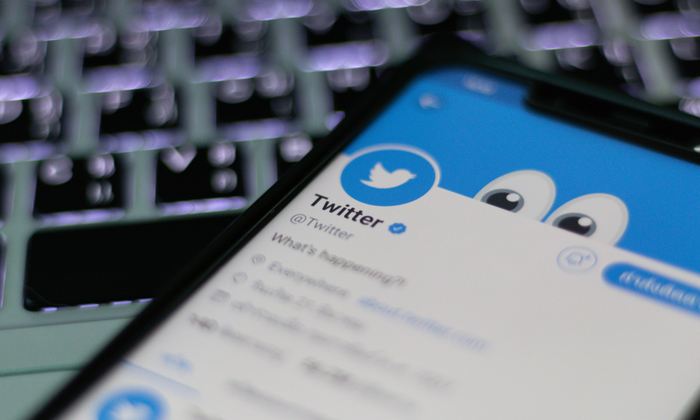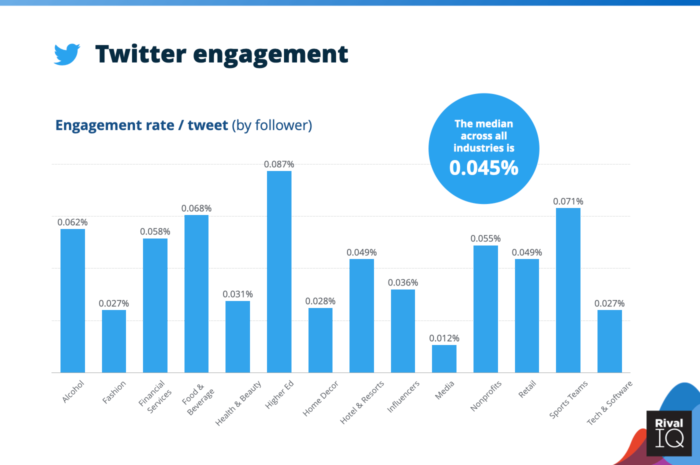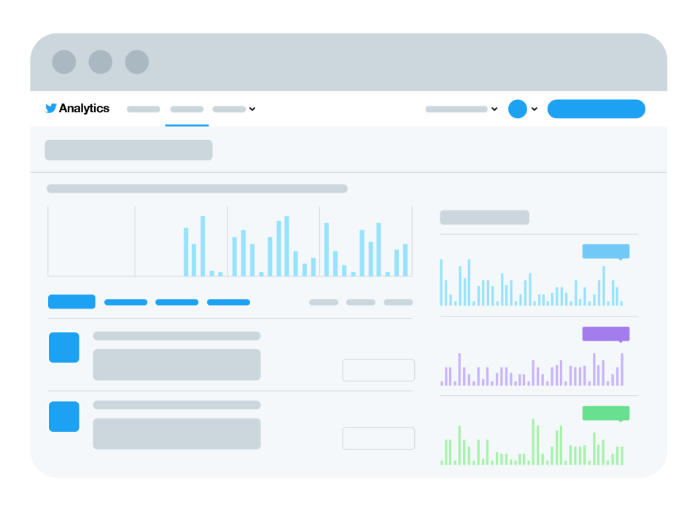How Much Do Twitter Ads Cost?

With an advertising audience of 353 million, Twitter is an ultra-effective free advertising tool. Still, as you probably know, the social networking site also provides plenty of paid advertising opportunities that let you target your followers, automate your bids, and promote your business.
When used properly, these ads enable your brand to gain visibility and attract more followers, click-throughs, and app downloads.
But how much do Twitter ads cost? Are they worth the cost?
You’ll find it hard to find a definitive answer to this. Naturally, the cost of Twitter ads varies for every marketer. They’ll differ depending on the aims, strategies, types of ads you use, and the price you’re willing to pay per bid.
The good news is that Twitter has advertising solutions available for all business sizes and budgets.
I will explain the different Twitter advertising options below. These factors contribute to your Twitter ads costs and finish with the metrics you should track to measure your campaigns’ cost-effectiveness.
Let’s start with the factors that influence the cost of your Twitter ads.
5 Factors That Affect the Cost of Twitter Ads
Several factors contribute to the total costs of your Twitter ads. This includes the type of adverts you’re using, the billable actions, your marketing techniques, your bid amount, and of course, the budget you have available to you.
Let’s look at these elements in more detail, starting with ad type.
1. Ad Type
Twitter offers three different main types of ads: promoted tweets, trends, and accounts.
Promoted ads: if you use Twitter, then you’re likely to have noticed these. Promoted tweets appear in your timeline, and you’ll see them tagged as “promoted.” You can retweet, share, and like promoted tweets the same way you would with regular tweets.
Promoted tweets can increase visibility and engagement. These Twitter ads’ costs will depend on how much you bid, but prices vary from $0.50 to $2 per billable action.
Promoted Trends: at $200,000 a day, promoted trends aren’t for everyone, but if you’re a large corporation with established, engaged followers, these ads could prove worthwhile for you.
Twitter Promoted Trends ads combine video with Twitter’s Explore function and show on Android, iPhone, and TweetDeck, and Twitter displays these ads for 24 hours in its Trends list.
The purpose of these adverts is to spark conversations and reach Twitter’s considerable audience. Specifically, Twitter suggests using them for new launches and promotions to increase awareness.
Promoted Accounts: when you’re on Twitter, you might notice some suggestions of other accounts to follow. Typically, these ads are suitable for users who want to increase their followers or announce a product launch. Promoted accounts cost vary from $2-$4 per follower.
2. Billable Actions
When you advertise on Twitter, the ad costs will also depend on your billable actions. Naturally, every marketer will have different objectives for their campaigns, so the type of billable actions you want Twitter users to take won’t be the same as another marketer or business owner.
For instance, you may want to get more followers, encourage app installs, or get click-throughs to your website, while another business owner might want to focus on video views.
There’s no set rate for these actions. As a business, you decide how much you want to pay through Twitter’s auction model. Once a Twitter user clicks through to your website or installs an app, or takes another billable action, Twitter will charge you.
Billable actions include:
- followers
- installs
- engagements
- video views
- pre-roll views
3. Auction Bids
One of the biggest influences on your Twitter ads cost is the amount you bid. As with any other auction, the highest bidder wins. Even if you’re willing to pay just a cent more than your rival, your ad will get shown.
However, if winning auctions is your goal, don’t overlook one crucial aspect of success with your bids: focus on your ads’ quality, as Twitter will pay attention to this, too. What that basically means is the higher the quality of your ads, the better the engagement, and the lower your costs.
What does Twitter mean by “ad quality?” In Twitter’s own words, it means adverts that are:
- resonant
- relevant
- recent
In other words, make sure your ads are engaging, targeted, and up to date.
4. Bidding Types
You can choose three types of bids on Twitter: maximum, automatic, and target bidding. Each of these types can influence your total Twitter ad costs in different ways.
Maximum Bidding
With maximum bidding, you set your top bid in the same way you would for any other online auction. You won’t need to spend your maximum amount on every bid, just enough to win against your nearest competitor.
Automatic Bidding
Automatic bidding is Twitter’s default option. You decide your budget, and Twitter will make the bid for you. There’s just something to consider with automated bidding, though. Although it might seem a good idea to leave it all to Twitter, you’ll spend through your budget pretty fast this way.
Target Bidding
Target bidding allows you to select your target cost-per-link, but it’s not for every ad campaign. Twitter limits its target bidding for website visits and followers.
When you use target bidding, you’ll base your campaign around what you want to achieve. For example, if you’re a new business, you might choose to get clicks through to your website.
You’ll select the price you want to pay for your target bidding when you’re starting your campaign on Twitter. If you’re looking for guidance, Twitter will show you real-time pricing before you place your bid.
5. Advertising Campaign Types
Twitter gives you six campaign types to choose from. They are:
- followers
- websites clicks and conversions
- tweet Installs
- app installs and re-engagements
- video views
- leads on Twitter
Your Twitter ads cost will depend on which campaign you select and what you hope to achieve from your advertising. For a more precise idea, Strike Social gives an excellent example of what this could look like in practice:
- website visits campaign: $1.68–$10
- followers campaigns: $2.50–$3.50
- tweet engagements campaigns: $1.50–$2.50
- app installs or re-engagement campaigns: $1.95–$3.25.
- awareness campaigns: $6.00–$8.00
Metrics
As with any other advertising campaign, measuring your key metrics lets you understand your ROI. Only then can you work out whether you’re getting fruitful results and growing your business, or whether you need to make some changes.
However, not all metrics are equal when it comes to social media.
The metrics that you’ll want to focus on most are the ones that encourage engagement, increase conversions, and how much this costs you per click. That means concentrating on metrics like your CPCs, CPFs, and CPEs.
According to WebFX, you can expect your main metrics to look something like this:

Click-through Rate
The click-through rate is at the top of the list for many marketers. It lets you measure engagement and see what’s working. According to AdStage, Twitter has an average click-through rate of 0.86.
Engagement Rates
Engagements come in many forms including, comments, retweets, follows, and replies. In case you’re wondering what your engagement rate should be, this depends on your niche, according to recently published research by Rival IQ.

The research shows that higher education leads the way with a 0.087 percent engagement rate. This is followed by:
- 0.071 percent for sport teams
- 0.068 percent for the food and beverage sector
- 0.062 percent for the alcohol industry
There are a few surprises among this data, with tech and media, fashion, and media sectors among the industries with the lowest engagement rates.
Conversion Rate
Your conversion rates show you the return you’re making on ad spend. You can track this through your Twitter account. Just go to ads.twitter.com, login, then:
- Click “Tools” from the drop-down menu at the top of the page.
- Scroll down to “conversion tracking.” If you can’t see this, it might be because you don’t have a credit card on file with Twitter.
- Agree to terms and conditions.
- Select the “Generate a website tag for conversion tracking.”
- Copy the code into your website.
If you’re not sure how to use coding, Twitter talks you through it on its pages.
Twitter Analytics

Twitter has an analytics tool that will show you how your organic and paid-for tweets perform. Keep track of these. If your organic tweets perform better than your paid advertising, you will want to refine your campaigns.
To use Twitter analytics, just go to your Twitter account and click the “turn on analytics” option. This will show your:
- mentions
- new followers
- impressions
- profile visits
Other metrics you’ll want to concentrate on include your:
- Cost per follower. Your CPF needs little explanation: it shows you how much it costs you to gain a new follower.
- CPM is your cost per mile. It measures your rate per 1,000 impressions.
- Cost per download (CPD) or cost per install (CPI) shows you what each install costs. On Twitter, the average per install is $2.53.
- Cost Per Click /Cost Per Action: When you’re paying for billable actions like click-throughs, followers, or app downloads, you’ll want to know how much this costs you on average to manage your budget.
What Should You Spend on Twitter Ads?
There’s no set amount that you should spend on Twitter. The site offers a mix of advertising items at differing prices, and it’s all about considering which is best suited to your business.
However, before you can decide how much to spend on Twitter ads, you’ll need to consider what you’re trying to achieve with your advertising campaign.
For example, a small business trying to promote its craft products might find that promoted tweets are enough to get click-throughs and conversions. In contrast, larger companies building on their existing audience are likely to have a more significant marketing budget and want to take a different approach.
It will also depend on:
Industry: As the stats from Rival IQ shows, some sectors attract more engagement than others, meaning the types of campaigns you run may need to differ depending on what industry you’re in.
Audience: Knowing what you want from a campaign is just one side of the story. Your audience is something else you should consider. If you already have an audience on Twitter, you’ll know the kind of content that engages them and gains you the most conversions.
Budget: How much Twitter ads cost ultimately depends on what you have available in your budget. To best plan your budget, ensure you understand all there is to know about bids, auctions, and billable actions.
Ad score: Twitter combines your bids with your ad quality to come up with your ad score. A superior ad score may reduce how much you pay.
How Much Do Twitter Ads Cost?
Ultimately, the answer is, it varies depending on your goals, strategies used, and the budget available to you. As Twitter explains:
“How much you pay in your campaigns is up to you. By setting up your budget during the campaign setup, you can control your Twitter ads costs.”
With Twitter, you can customize your adverts to suit your individual needs, and there are no minimum costs.
When you’re setting up your adverts, Twitter will ask you to set your total budget and daily maximum. Twitter’s general guidance is to set your budget at a price you’re comfortable with, but even if you don’t have the marketing budget of a multimillion corporation, a little can take you a long way.
Conclusion
Your Twitter ads costs will vary depending on several factors, including the strategy you use, the billable actions, and the type of adverts you choose.
Depending on your brand’s size, not all Twitter’s advertising options are ideal for every business.
A small business with a limited budget isn’t likely to want to spend massive amounts. In contrast, a corporation will have a significant marketing budget at its disposal and be willing to spend much more.
However, with no minimum spend and the ability to target an audience, you may find Twitter ads are a useful tool for gaining visibility and promoting your brand.
Do Twitter Ads work for you? Which strategies do you use?
from Neil Patel https://ift.tt/3lq4bV1
No comments